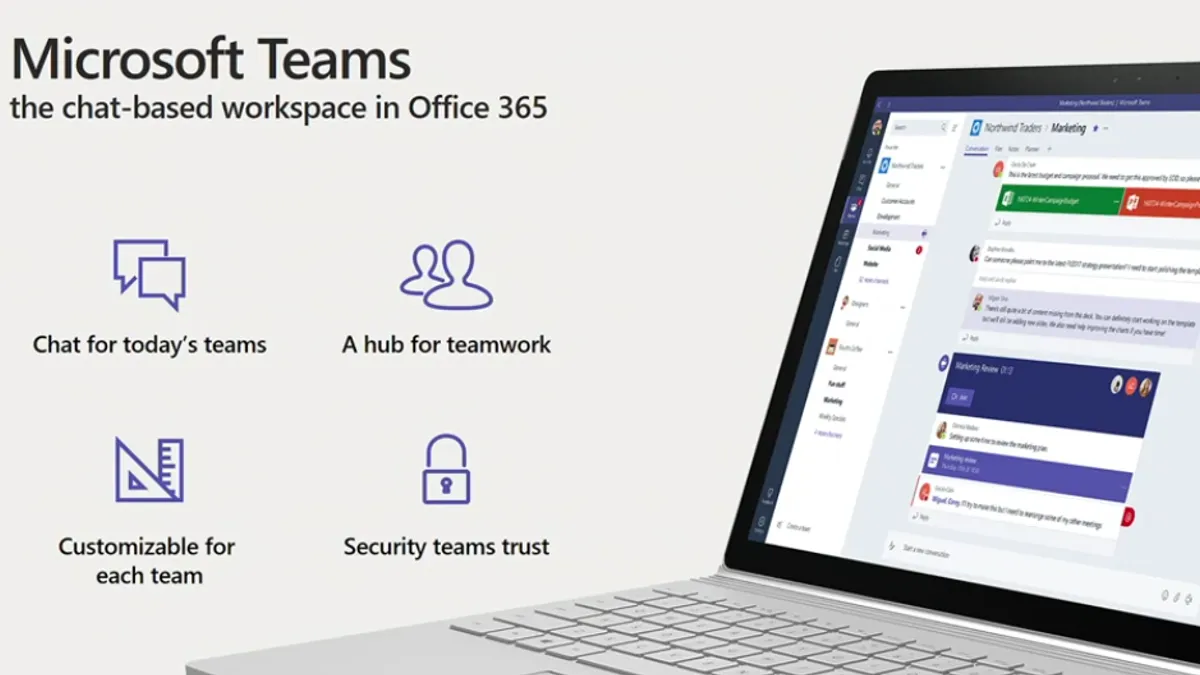Dive Brief:
- Microsoft unveiled a guest access feature for its enterprise chat platform Teams in an announcement on Monday. The feature allows Teams communication to extend outside a company to its partners in the commercial and education sectors, and this allows the full functions of Teams to continue with guest access including chat rooms, SharePoint and conference calling.
- Guest access is granted to any company with an Azure Active Directory account or anyone with Microsoft commercial cloud services. Eventually, Microsoft Account users will also be given access as guest users.
- Currently, there are 870 million people in the Azure Active Directory. Office 365 has 100 million users, and 125,000 organizations have begun using Teams since its November 2016 launch.
Dive Insight:
Microsoft is closing the gap for communication between partnered companies. By centralizing a communication platform for a company dependent on external collaboration, Microsoft could gain tremendous traction in relation to other enterprise chat providers.
Since its unveiling in November, Teams has joined the ranks of Slack, Atlassian's HipChat, Workplace by Facebook and Google Hangouts in the crowded collaboration market. Slack, seen as the innovator of the enterprise communication platform, even welcomed the enterprise giant to the chat market with a cheeky full-page ad in The New York Times.
Enterprise communication providers are releasing constant updates to lure more companies to their platforms. HipChat just unveiled Stride, a platform that houses more collaboration features. But regardless of new capabilities, email remains the most trusted form of communication in a company.
Allowing a chat room to extend outside a company and opening up guest access in Teams is a feature that can set Microsoft apart from its competitors. Companies are no longer solely self-serving and are now typically dependent on partnerships to progress. A streamlined approach to internal and external communication is necessary to advance operations without confusion.
Companies like Microsoft and Google are already capitalizing on their existing presence in the enterprise, whether it be through their cloud services, software or hardware devices. Teams' guest access will only further Microsoft's enterprise dominance.













